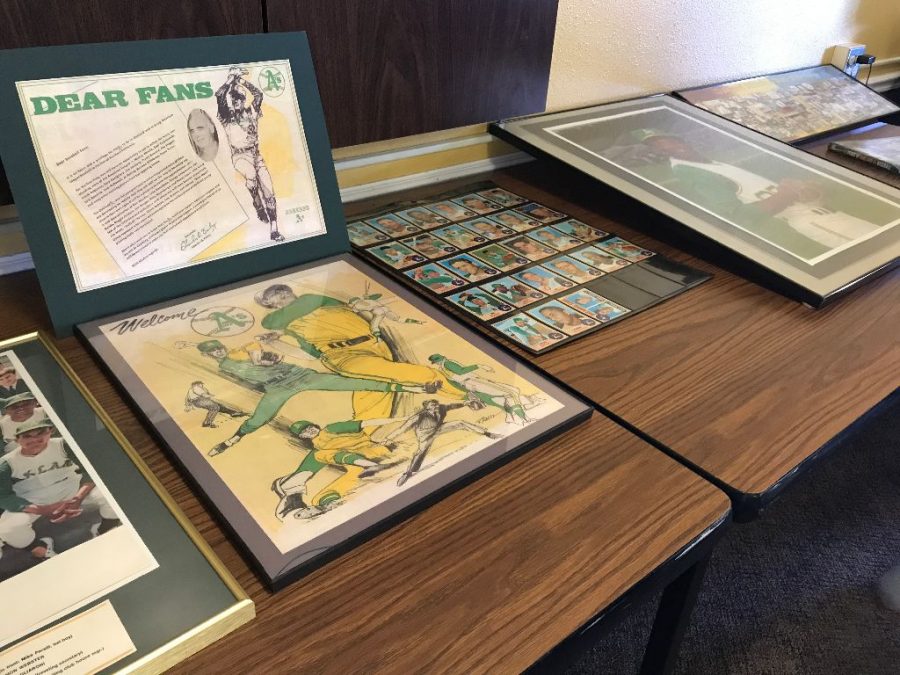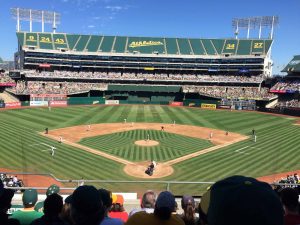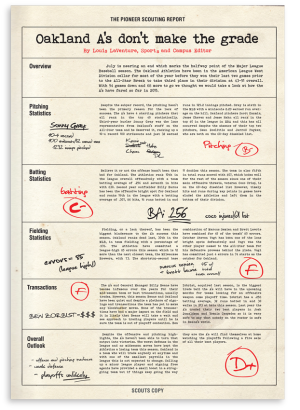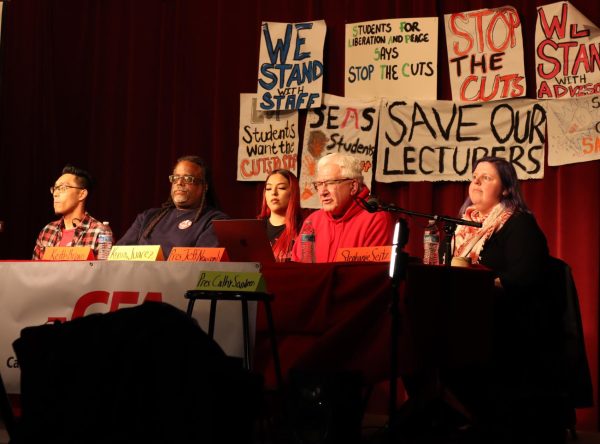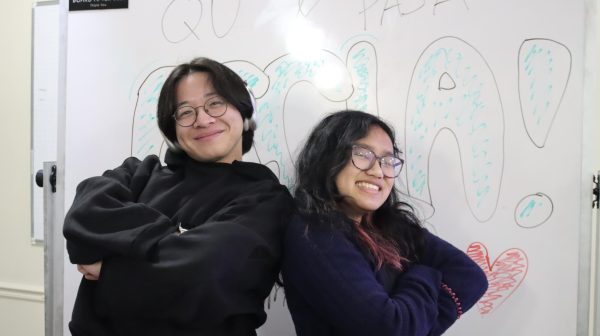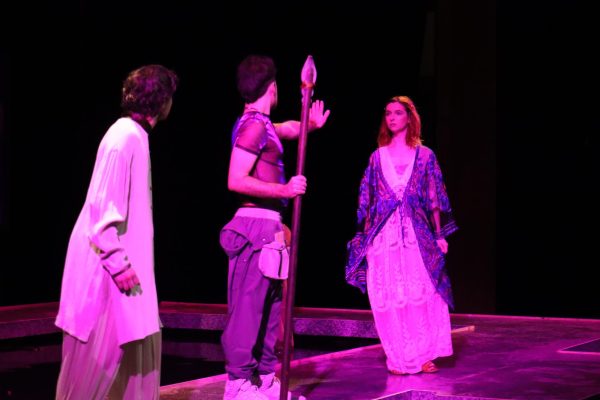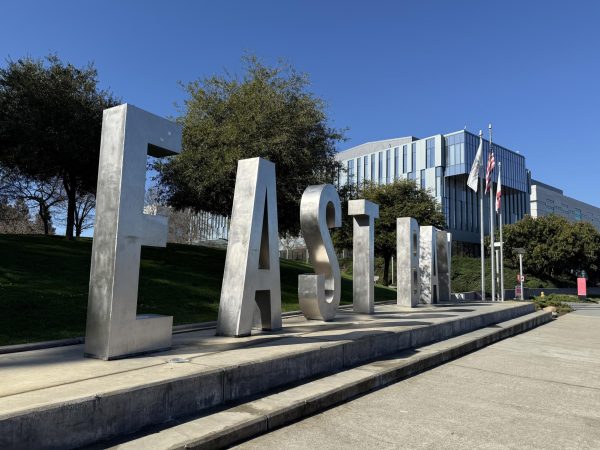Oakland Athletics celebrates 50 years at CSUEB
Excited Cal State East Bay students enrolled in the History of Baseball class poured into the Old University Union with other Pioneer baseball fanatics as a discussion panel unfolded this past Monday. The panel discussion was organized and moderated by CSUEB’s Benjamin Klein, a lecturer in the history department, who currently teaches a course titled, “Baseball in America.”
This year marks the 50th anniversary of the arrival of the Athletics baseball franchise from Kansas City to Oakland. The panel consisted of former professional players, university professors and industry workers, all of whom painted a vivid picture of life in the ‘50s and ‘60s in the United States.
Doug McWilliams, a baseball card photographer who participated in Monday’s panel, provided a heartfelt account of his first professional gig for Topps, an American baseball card company. After McWilliams’ first submission to Topps did not make the cut, Sy Berger, an executive of Topps often referred to as “the father of the modern-day baseball card,” gave McWilliams a shot after seeing a postcard with a photo he took of Vida Blue, who played for the A’s and on the panel.
“I’m waiting for my kickdown!” exclaimed Blue. The opportunity provided by the postcard led to a 24-year-long career at Topps for McWilliams.
CSU Stanislaus professor Samuel Regalado is also the author of the Oakland Athletics Magazine. He cited the 1990 World Series between the Oakland A’s and the Cincinnati Reds as one of his most memorable moment in A’s history, when two no-hitters were pitched in a single game for the first time in MLB history.
Blue, a former player for the A’s who was inducted into the Baseball Hall of Fame in 1995, when asked about workout regimens in high school, said, “With this body, man? C’mon! No!” As the crowd broke into laughter, he elaborated on how sports were “a way out” for him and his peers during their youth in Louisiana.
Throughout the discussion, the emphasis was on the tie between American and baseball history and the opportunities that the sport provided young African Americans, Latinos and Japanese immigrants. Panelists went so far as to even cite how games they’d attended in the ‘50s and ‘60s were reminiscent of current political protests in American football today, since many people didn’t stand for the National Anthem then.


